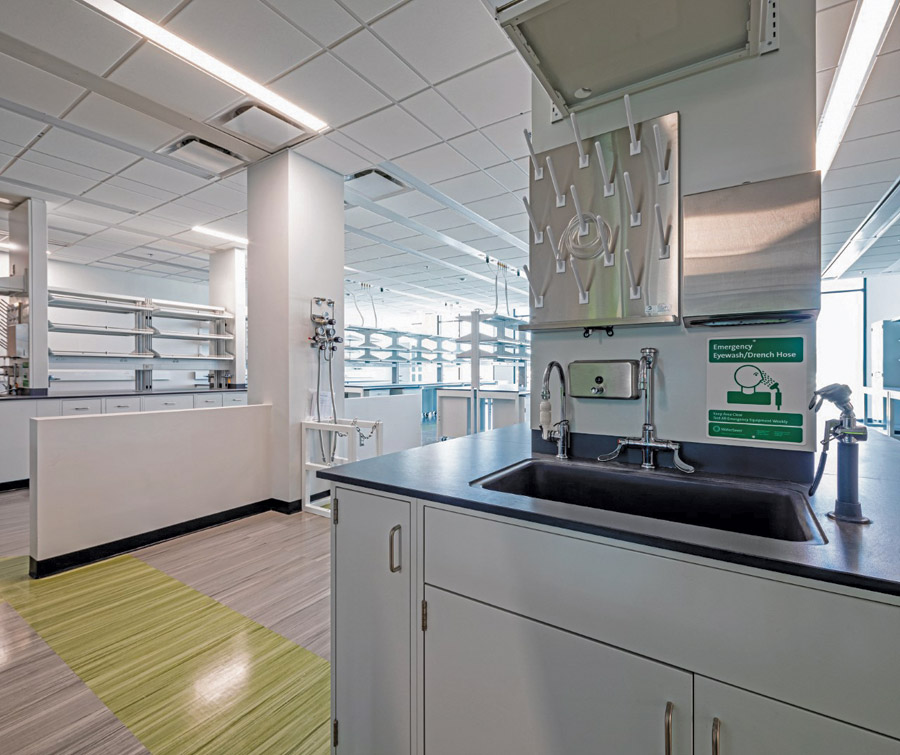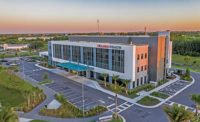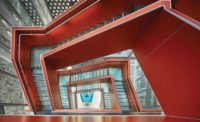Though buffeted by gas price spikes, supply chain issues and inflation, the Southeast’s construction economy has so far managed to demonstrate the same resilience that helped it weather the pandemic, with most locations and sectors showing moderate to strong growth. That’s encouraging news for the region’s specialty contractors, who nevertheless are finding those proverbial “good problems to have” increasingly challenging to solve.
Related Link:
ENR Southeast 2022 Top Specialty Contractors
“The past 12 to 18 months have been interesting,” observes Ed Witt Jr., president and CEO of Miller Electric Co., Jacksonville, Fla., this year’s fifth-ranked specialty contractor. Along with significant growth in the firm’s core data center and health care markets, some of which Witt attributes to pandemic-delayed projects, “we’ve benefited from the ‘Great Resignation’ and the ‘Great Migration’ of people and businesses to the region, and Florida in particular.”
Southeast cities are all experiencing strong population growth, which is “feeding many market sectors,” agrees Michael Dominici, vice president of Alpharetta, Ga.-based interiors specialist the Circle Group, No. 29 in this year’s ranking. “Many projects that were on ice during COVID were kickstarted, but to much higher prices. Multifamily has been very robust with some signs of a mild slowdown in the form of actual project starts. Hospitality has also been steady.”
Along with traditional urban hot spots of activity, exurbs and rural areas with easy access to transportation networks are welcoming a variety of new automotive and biotechnology complexes. They include Rivian’s $5-billion electric truck manufacturing facility northeast of Atlanta—Georgia’s largest-ever economic development project; Ultium Cells’ $2.3-billion battery cell manufacturing plant in Spring Hill, Tenn.; and Eli Lilly’s $1-billion pharmaceutical plant in Concord, N.C.
Witt cautions that more is not always better. “The quantity of opportunities makes selection of the right ones essential in not getting distracted, and not overselling your capabilities,” he says.

The $120-million Miller Electric Center, the Jacksonville Jaguars’ new training facility, is set to be complete before the 2023 NFL season gets underway.
Rendering courtesy Rosetti
That’s not always easy given how inflation has amplified supply chain volatility that has been in play for more than two years.
“The escalation appears to have slowed, but we were riding the wave like everyone else,” says Adam Carrouth, COO of SPC Mechanical, ranked No. 19 in this year’s Top Specialty Contractors list.
Carrouth adds that bidding projects to ensure costs are covered has become more difficult. He cites a growing trend toward projects being delayed by weeks or even months as well as the more frequent inconvenience of last-minute supplier delays.
“You think you’re in good shape,” he says, “then it’s pushed back and you find yourself with holes to fill.”
Carrouth also reports an uptick in publicly funded projects since the start of the new year, albeit with fewer firms vying for work in what is a traditionally reliable sector. He suspects the cause may be a combination of factors, from firms’ inability to guarantee prices to already bulging backlogs.
Whatever the reason, Carrouth says, “it has been enough to push some public projects back because there were not enough qualified bidders.”
The volatility of construction materials has also forced a drastic change to pricing and bidding work over the past two years. “Owners and GCs want a firm fixed price for the duration of a project, which has been very difficult, if not impossible, to do,” Dominici says, adding that while materials such as metal framing have stabilized, delayed project starts can translate into significant material escalation costs.
“We are pricing many projects an extraordinary amount of times from early inception to final construction documents,” he says. “The whole pricing process can take a year or longer and involve many different pricing exercises as the drawings slowly develop. That has been a frustrating and expensive part of the process for everyone.”

Miller Electrical served as the full-service electrical provider for the 225,000-sq-ft Baptist Jacksonville Entry/Wolfson Children’s Critical Care Tower, the “front door” to the newly expanded campus.
Photo courtesy Miller Electric
Coping strategies
Another potential limiting factor for specialty contractors is the near perpetual shortage of skilled labor. While the pandemic alone may not have widened skills gaps, the sustained demand for specialty construction services makes it feel that way.
Subcontractors are managing to meet their commitments through measures such as stepping up the use of offsite prefabrication and increasing site supervision to oversee less experienced field crews. “Where possible, we try to design systems that are in accordance with material that’s readily available, and make installation less complicated,” Carrouth says.

Miller Electric assisted in installing the water, sound and light show at the 200-ft-wide Friendship Fountain in Jacksonville, Fla., part of a $6-million renovation.
Photo courtesy Ryan Ketterman
Witt says Miller Electric has altered its pursuits strategy, changing both how it prices work and the type of work it prices.
“Refocusing on existing trusted client partners as well as seeking out new similar client opportunities is at the heart of our post-pandemic strategy,” he says. “Through these trusting relationships, we can be transparent with supply chain, resource and even contract challenges, which establishes realistic expectations for everyone.”
For the most part, those expectations include a continued strong market for specialty construction services, though some sectors are better positioned than others. While demand for multifamily projects may be peaking, Dominici feels strength in health care, higher education, student housing and senior living may help make up the difference.
“There are many large projects still in the preplanning and bid stages, but not all will come to fruition with rising interest rates and construction costs still at all-time highs,” he says. “We have already seen some projects that have been in the budgeting stages for a year or longer get put on ice or scrapped altogether due to budget issues.”
Another concern, Witt adds, is how the region might be affected by an inflation-slowed overall economy or a recession.
“Our economy seems to be defying gravity when you listen to and read the news, but I have a feeling something will eventually happen which will impact our work outlook,” he says, adding that his company is already taking steps to prepare for such an eventuality.
“Until then,” Witt adds, “we will continue the ride.”

SPC performed plumbing work for the 146,000-sq-ft, four-story lab science education building at Eastern Carolina University in Greenville, N.C.
Photo courtesy SPC Mechanical
About the Ranking
ENR Southeast’s Top Specialty Contractors ranking lists firms’ 2021 revenue figures earned from projects located in the Southeast. The 48 firms in this year’s list reported total revenue of $5.89 billion in 2021. Florida ranks as the top state for specialty contracting revenue, with $1.8 billion in 2021, followed by North Carolina, with $1.3 billion. Specialty firms reported $869.3 million in Georgia, $700.2 million in South Carolina, $614.2 million in Tennessee and $514.6 million in Alabama. Four firms reported work in Puerto Rico, for a total $7.58 million. In addition to revenue, the main ranking includes information about each firm, such as top markets and largest recent contracts, and ranks them by state and market-sector revenue. Last year’s No. 1 specialty contractor Mastec did not participate in this year’s ranking, opting to submit only for ENR’s national specialty contractors ranking.





Post a comment to this article
Report Abusive Comment